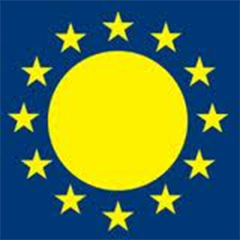The Clean Energy Package, the Green Deal, European Climate Law: The European Union has introduced numerous initiatives promoting joint, climate-friendly energy policies. But the EU’s legal means are limited – just how limited they are is the focus of Stefan Storr’s research. A professor at WU’s Institute for Austrian and European Public Law, Storr criticizes the imprecise wording of the EU Governance Regulation and the draft of the European Climate Law and warns that the EU could be overstepping its competences in its eagerness to achieve the goal of a climate-neutral union by 2050.
The energy sector is a key factor of our economies and is currently undergoing massive changes. For over 20 years, comprehensive liberalization efforts have worked to overcome monopolies in the energy sector and facilitate competition. One of today’s greatest challenges is the transition to increased energy efficiency and the use of climate-friendly energy sources. The EU is pushing hard to achieve these goals with initiatives like the Clean Energy Package, the Green Deal, and the European Climate Law currently under development, but for these measures to be successful, it needs member states to play along. WU legal expert Stefan Storr is investigating just how far-reaching the EU’s competences are in the energy sector. “The main problem with a Europe-wide energy and climate policy is that the European Union does not have overarching competences in the energy sector and the field of climate protection,” says Storr.
Imprecise wording in the Governance Regulation
The European Treaties do give the EU the competence to realize the Single European Market while taking into account the need to conserve and improve the environment, especially with regard to promoting energy efficiency, reducing energy use, and developing new and renewable energy sources, but member states retain considerable powers of their own. As Storr explains, “EU member states are free to make their own national decisions about the conditions for exploiting their energy resources, their choice between different energy sources, and the general structure of their energy supply. In addition, high-budget projects can also affect the member states’ budgetary and economic policies, meaning that the EU cannot pursue a comprehensive, EU-wide policy.” This is why the EU is attempting to coordinate the member states’ energy and climate policies using a governance system and common guidelines requiring member states to develop integrated national energy and climate plans and long-term strategies. “The European Commission then assesses these plans and strategies. If necessary, it can issue country-specific recommendations. Among other things, the Commission looks at how ambitious the member states are in pursuing goals and implementing policies and measures for reaching their climate targets. The recommendations are not binding, but the member states must ‘take due account’ of them. This and other examples of vague, imprecise wording allow for widely varying interpretations in governance and make it difficult to implement policies uniformly in member states,” says Storr.
Delegated acts on specific pathways go too far
Storr feels that this research shows how important it is to carry out nuanced analyses and assessments of the distribution of competences between the EU and its member states and of the possibilities of coordinated energy and climate protection policies. In some instances, according to Storr, the EU Commission also goes too far, for example by seeking the power to adopt delegated acts to prescribe specific pathways for achieving the EU’s 2050 climate targets in the 2031–2050 period. Delegated acts are only allowed to include ‘non-essential’ regulations,” Storr explains.
About Stefan Storr
Stefan Storr is a professor of Austrian and European law at WU. He studied law in Heidelberg and Munich and earned his law degree in Munich. He was an academic staff member at the University of Jena, where he received his doctorate. After taking the bar exam, he earned his venia docendi in the subjects of constitutional and administrative law, European law, and financial constitutional law in Jena. He then worked as a lawyer in Leipzig and taught as a visiting professor in Jena, Munich, and Dresden. He continued on to the University of Graz in 2008, before being appointed as a professor at the Institute for Austrian and European Public Law at WU in 2018. His research focuses on constitutional and administrative law, EU law, and public economic law, especially energy law. He has published extensively in Austrian and international journals, edited volumes, and legal commentaries.



























